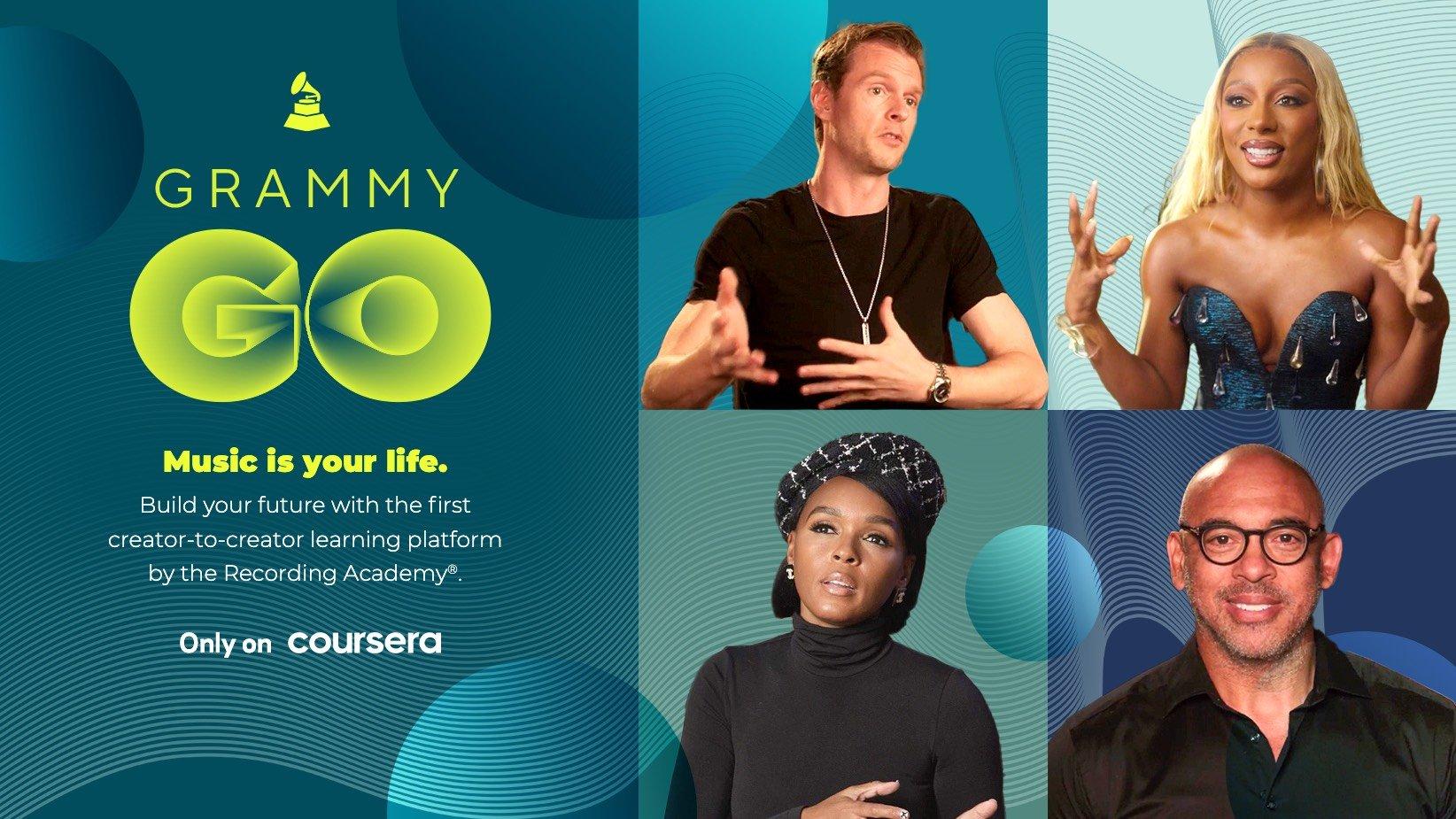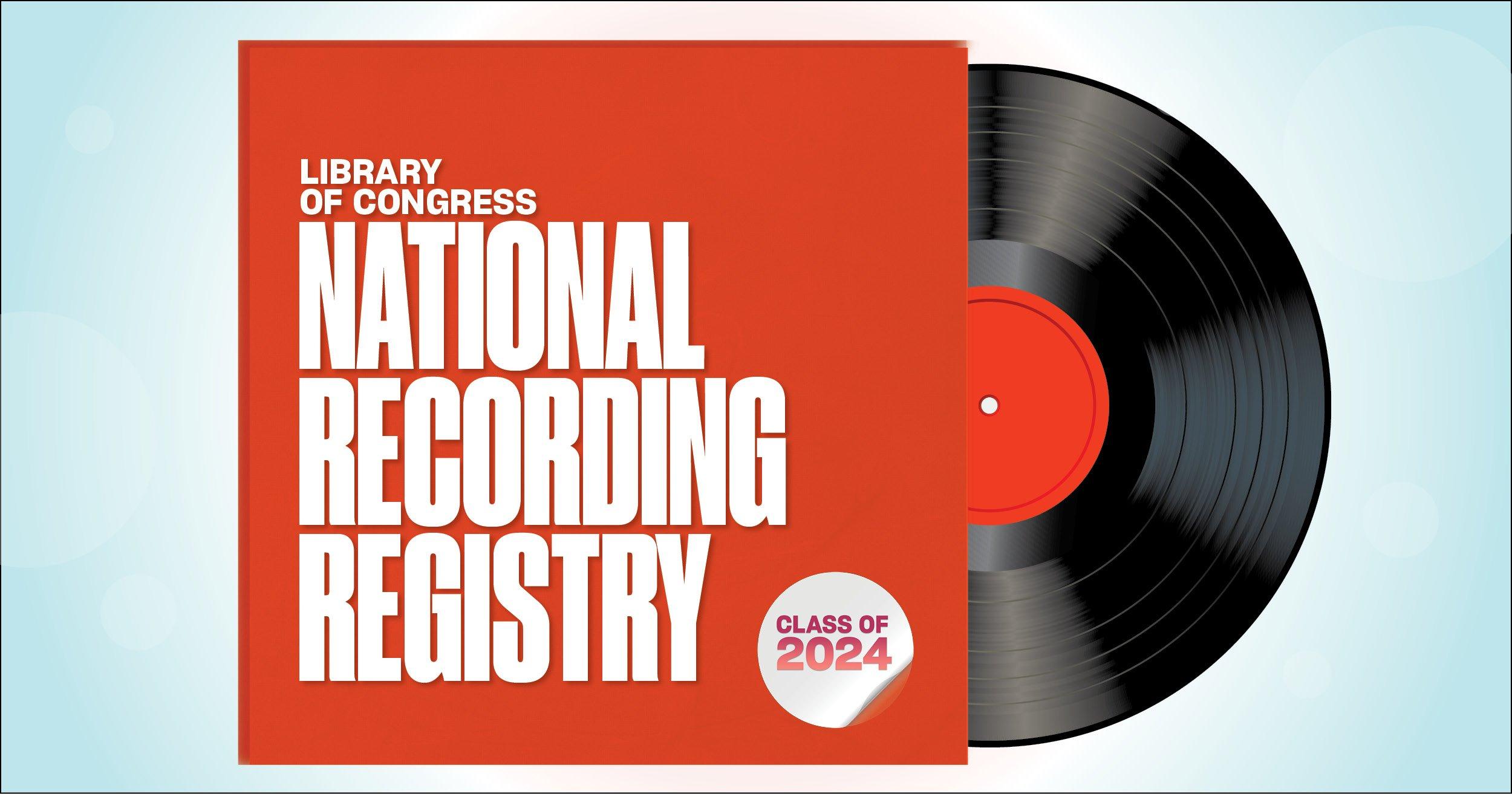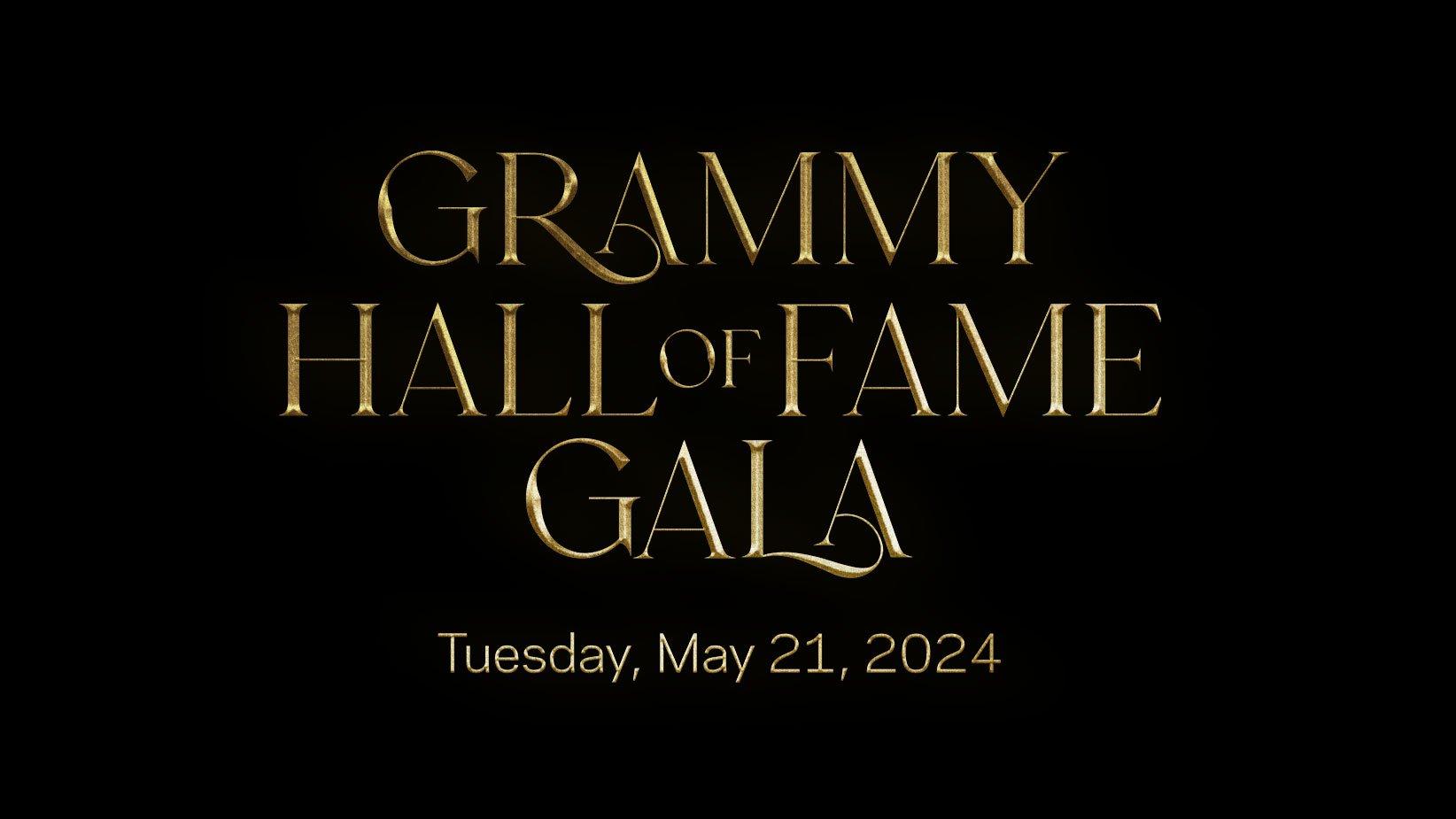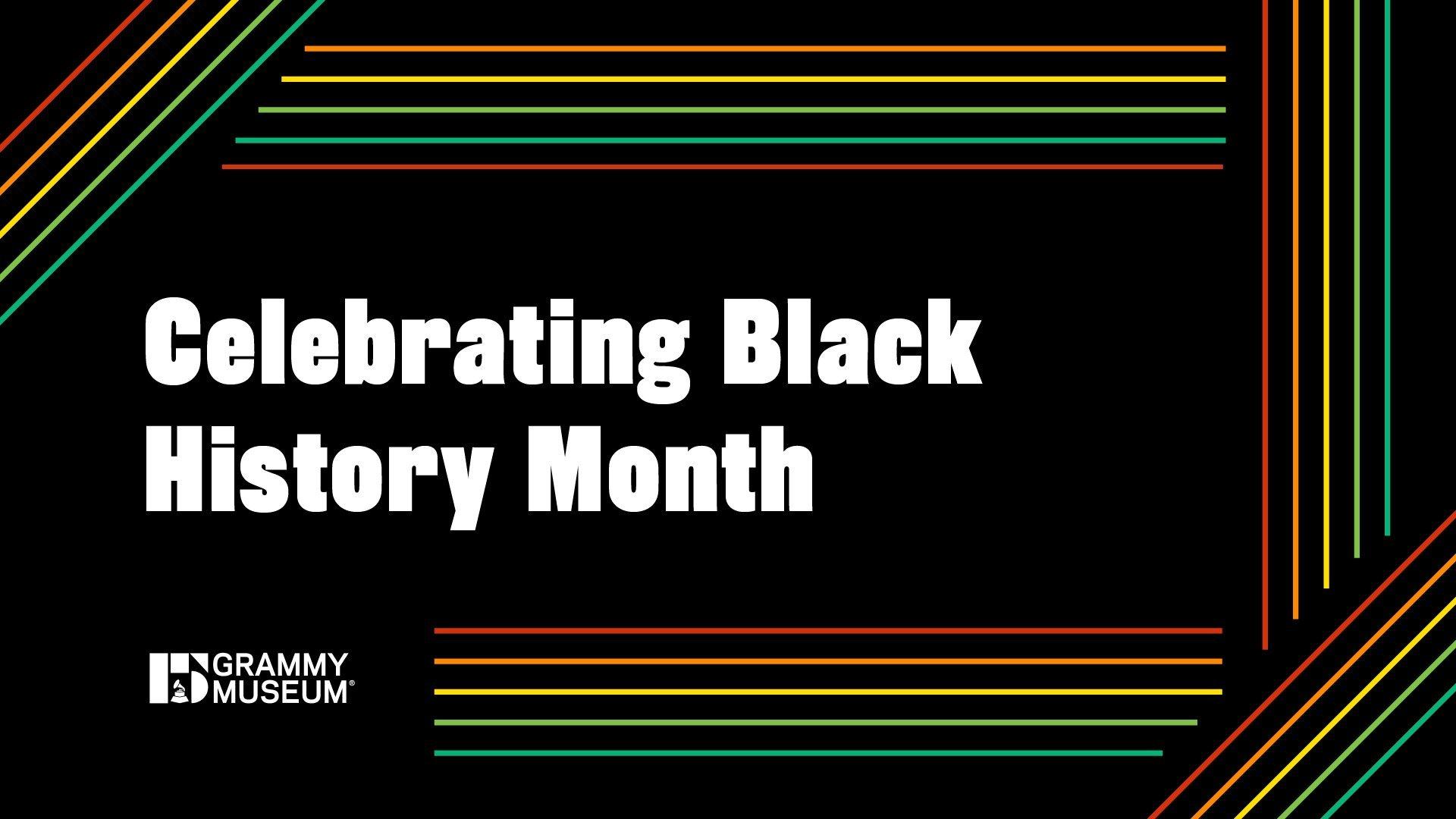Photo: Valerie Macon/AFP via Getty Images

news
The Recording Academy Establishes Black Music Collective
The newly launched collective comprises a group of prominent Black music creators and professionals who share the common goal of amplifying Black voices within the Recording Academy and the wider music community
The Recording Academy has today (Sept. 3) announced the creation of its Black Music Collective (BMC), a group of prominent Black music creators and professionals who share the common goal of amplifying Black voices within the Academy and the wider music community.
As part of the Recording Academy's commitment to evolving hand-in-hand with its membership, BMC will serve as a space for members to speak openly about new and emerging opportunities in Black music across all genres and identify ways to drive more representation.
The launch of BMC follows the Recording Academy's recent partnership with Color Of Change, the nation's largest online racial justice organization, in July, which set forth to create a Black music advisory group. The BMC fulfills this promise and is bringing together creators and business leaders to create a pipeline of future industry trailblazers. Leaders will meet regularly and initiate programs that will encourage participation and accelerate Black membership in the Recording Academy.
Jeffrey Harleston, Jimmy Jam, Quincy Jones, Debra Lee, John Legend, and Sylvia Rhone will serve as honorary chairs of the BMC. A distinguished leadership committee will be confirmed in the coming weeks and will work in sync with the honorary chairs to propel the collective's mission. Recording Academy Trustee Riggs Morales and Washington, D.C., Chapter Executive Director Jeriel Johnson will lead the initiative internally.
"The Black Music Collective is necessary to help drive the Recording Academy into a new era. Creating an open space for Black music creators can only benefit our membership as a whole," Harvey Mason jr., Chair and Interim President/CEO of the Recording Academy, said. "Through the past few months, I've been personally invested in propelling this collective along with Chapter leadership within the Academy. Together, we will elevate Black music creators within our organization and the industry at large."
"As Black music continues to drive culture, it is essential we grow and maintain representation within the Academy and the music industry," Valeisha Butterfield Jones, Chief Diversity & Inclusion Officer of the Recording Academy, said. "We're thrilled to help develop the leaders of tomorrow with impactful educational and experiential programs that we will announce in coming weeks."
In March 2018, the Recording Academy established a third-party task force to examine issues of diversity and inclusion within the Academy and the broader music community. The Academy has since taken action on the Task Force's initial assessment and recommendations and has made additional strides to facilitate a culture of belonging while recognizing the need to focus on underrepresented communities. Recent initiatives include the hiring of a Chief Diversity & Inclusion Officer, a $1 million donation to Color Of Change, alignment with #TheShowMustBePaused movement created by Jamila Thomas (Atlantic Records) and Brianna Agyemang (Platoon), and the development of an industry Inclusion Rider and Toolkit to be released later this year.
Stay up to date on the Recording Academy's progress, future announcements and recent initiatives on diversity and inclusion.
Recording Academy Invites & Celebrates Its 2020 New Member Class

Graphic & Photos Courtesy of GRAMMY GO
news
Recording Academy & Coursera Partner To Launch GRAMMY GO Online Learning Initiative
Class is in session. As part of the Recording Academy's ongoing mission to empower music's next generation, GRAMMY Go offers digital content in specializations geared to help music industry professionals grow at every stage of their career.
The Recording Academy has partnered with leading online learning platform Coursera on GRAMMY GO, a new online initiative to offer classes tailored for music creators and industry professionals.
This partnership empowers the next generation of the music community with practical, up-to-the moment digital content that provides wisdom for both emerging and established members of the industry. Continuing the Academy’s ongoing mission to serve all music people, courses cover a variety of specializations tailored to creative and professional growth.
GRAMMY GO on Coursera includes courses taught by Recording Academy members, featuring GRAMMY winners and nominees and offers real-life lessons learners can put to work right away.
Starting today, enrollment is open for GRAMMY GO’s first Coursera specialization, "Building Your Audience for Music Professionals," taught by Joey Harris, international music/marketing executive and CEO of Joey Harris Inc. The course features Rock & Roll Hall of Fame inductee and five-time GRAMMY winner Jimmy Jam, 10-time GRAMMY nominee Janelle Monáe and three-time GRAMMY winner and the 2024 GRAMMYs Best New Artist Victoria Monét. This foundational specialization will help participants gain the skills, knowledge and confidence to build a strong brand presence and cultivate a devoted audience within the ever-changing music industry.
The partnership’s second course, launching later this summer, aims to strengthen the technological and audio skills of a music producer. "Music Production: Crafting An Award-Worthy Song" will be taught by Carolyn Malachi, Howard University professor and GRAMMY nominee, and will include appearances by GRAMMY winner CIRKUT, three-time GRAMMY winner Hit-Boy, artist and celebrity vocal coach Stevie Mackey, five-time GRAMMY nominee and Recording Academy CEO Harvey Mason jr., and 15-time GRAMMY winner Judith Sherman. Pre-enrollment for "Music Production: Crafting An Award-Worthy Song" opens today.
"Whether it be through a GRAMMY Museum program, GRAMMY Camp or GRAMMY U, the GRAMMY organization is committed to helping music creators flourish, and the Recording Academy is proud to introduce our newest learning platform, GRAMMY GO, in partnership with Coursera," said Panos A. Panay, President of the Recording Academy. "A creator’s growth path is ongoing and these courses have been crafted to provide learners with the essential tools to grow in their professional and creative journeys."
"We are honored to welcome GRAMMY GO, our first entertainment partner, to the Coursera community," said Marni Baker Stein, Chief Content Officer at Coursera. "With these self-paced online specializations, aspiring music professionals all over the world have an incredible opportunity to learn directly from iconic artists and industry experts. Together with GRAMMY GO, we can empower tomorrow's pioneers of the music industry to explore their passion today."
GRAMMY GO also serves as the music community’s newest digital hub for career pathways and editorial content that provides industry insights for members of the industry; visit go.grammy.com for more. For information and enrollment, please visit the landing pages for "Building Your Audience for Music Professionals" and "Music Production: Crafting An Award-Worthy Song."

Photo: Library of Congress
news
National Recording Registry Inducts Music From The Notorious B.I.G., Green Day, Blondie, The Chicks, & More
Recordings by the Cars, Bill Withers, Lily Tomlin, Doug E. Fresh and Slick Rick, and the all-Black 369th U.S. Infantry Band after World War I are also among the 25 selected for induction.
As a founding member of the National Recording Preservation Board, the Recording Academy was instrumental in lobbying and getting the board created by Congress. Now, the Library of Congress has added new treasures to the National Recording Registry, preserving masterpieces that have shaped American culture.
The 2024 class not only celebrates modern icons like Green Day’s punk classic Dookie and Biggie Smalls' seminal Ready to Die, but also honors vintage gems like Gene Autry’s "Rudolph, the Red-Nosed Reindeer" and Perry Como’s hits from 1957. These recordings join over 650 titles that constitute the registry — a curated collection housed within the Library’s vast archive of nearly 4 million sound recordings.
Librarian of Congress Carla Hayden announced these additions as essential pieces of our nation’s audio legacy, each selected for their cultural, historical, or aesthetic importance. This selection process is influenced by public nominations, which hit a record number this year, emphasizing the public's role in preserving audio history.
Read more: Inside Green Day's Intimate "Right Here, Right Now" Global Climate Concert In San Francisco
"The Library of Congress is proud to preserve the sounds of American history and our diverse culture through the National Recording Registry," Hayden said. "We have selected audio treasures worthy of preservation with our partners this year, including a wide range of music from the past 100 years, as well as comedy. We were thrilled to receive a record number of public nominations, and we welcome the public’s input on what we should preserve next."
The latest selections named to the registry span from 1919 to 1998 and range from the recordings of the all-Black 369th U.S. Infantry Band led by James Reese Europe after World War I, to defining sounds of jazz and bluegrass, and iconic recordings from pop, dance, country, rock, rap, Latin and classical music.
"For the past 21 years the National Recording Preservation Board has provided musical expertise, historical perspective and deep knowledge of recorded sound to assist the Librarian in choosing landmark recordings to be inducted into the Library’s National Recording Registry," said Robbin Ahrold, Chair of the National Recording Preservation Board. "The board again this year is pleased to join the Librarian in highlighting influential works in our diverse sound heritage, as well as helping to spread the word on the National Recording Registry through their own social media and streaming media Campaigns."
Tune in to NPR's "1A" for "The Sounds of America" series, featuring interviews with Hayden and selected artists, to hear stories behind this year’s picks. Stay connected to the conversation about the registry via social media and listen to many of the recordings on your favorite streaming service.
For more details on the National Recording Registry and to explore more about the selections, visit The Library of Congress's official National Recording Registry page.
National Recording Registry, 2024 Selections (chronological order)
"Clarinet Marmalade" – Lt. James Reese Europe’s 369th U.S. Infantry Band (1919)
"Kauhavan Polkka" – Viola Turpeinen and John Rosendahl (1928)
Wisconsin Folksong Collection (1937-1946)
"Rose Room" – Benny Goodman Sextet with Charlie Christian (1939)
"Rudolph, the Red-Nosed Reindeer" – Gene Autry (1949)
"Tennessee Waltz" – Patti Page (1950)
"Rocket ‘88’" – Jackie Brenston and His Delta Cats (1951)
"Catch a Falling Star" / "Magic Moments" – Perry Como (1957)
"Chances Are" – Johnny Mathis (1957)
"The Sidewinder" – Lee Morgan (1964)
"Surrealistic Pillow" – Jefferson Airplane (1967)
"Ain’t No Sunshine" – Bill Withers (1971)
"This is a Recording" – Lily Tomlin (1971)
"J.D. Crowe & the New South" – J.D. Crowe & the New South (1975)
"Arrival" – ABBA (1976)
"El Cantante" – Héctor Lavoe (1978)
"The Cars" – The Cars (1978)
"Parallel Lines" – Blondie (1978)
"La-Di-Da-Di" – Doug E. Fresh and Slick Rick (MC Ricky D) (1985)
"Don’t Worry, Be Happy" – Bobby McFerrin (1988)
"Amor Eterno" – Juan Gabriel (1990)
"Pieces of Africa" – Kronos Quartet (1992)
Dookie – Green Day (1994)
Ready to Die – The Notorious B.I.G. (1994)
"Wide Open Spaces" – The Chicks (1998)
21 Albums Turning 50 In 2024: 'Diamond Dogs,' 'Jolene,' 'Natty Dread' & More

Image courtesy of the GRAMMY Museum
news
The GRAMMY Hall Of Fame Returns To Celebrate 50th Anniversary: Inaugural Gala & Concert Taking Place May 21 In Los Angeles
Following a two-year hiatus, the GRAMMY Hall Of Fame returns to celebrate its 50th anniversary with an inaugural gala and concert on Tuesday, May 21, at the NOVO Theater in Los Angeles. Ten recordings will be newly inducted into the Hall this year.
Following a two-year hiatus, the GRAMMY Museum and Recording Academy are reinstating the GRAMMY Hall Of Fame on its 50th anniversary. The momentous event will be celebrated with an inaugural gala and concert on Tuesday, May 21, at the NOVO Theater in Los Angeles; tickets and performers for the event will be announced at a later date. As part of the return, 10 recordings, including four albums and six singles, will be newly inducted into the GRAMMY Hall Of Fame later this year.
The GRAMMY Hall Of Fame was established by the Recording Academy's National Trustees in 1973 to honor recordings of lasting qualitative or historical significance that are at least 25 years old. Inductees are selected annually by a special member committee of eminent and knowledgeable professionals from all branches of the recording arts with final ratification by the Recording Academy's National Board of Trustees. There are currently 1,152 inducted recordings in the GRAMMY Hall Of Fame. View the full list GRAMMY Hall Of Fame past inductees.
This year, the GRAMMY Museum’s GRAMMY Hall Of Fame Gala will be the first of what will become an annual event, and includes a red carpet and VIP reception on the newly opened Ray Charles Terrace at the GRAMMY Museum, followed by a one-of-a-kind concert at the NOVO Theater in Downtown Los Angeles.
The inaugural gala and concert is produced by longtime executive producer of the GRAMMY Awards, Ken Ehrlich, along with Chantel Sausedo and Ron Basile and will feature musical direction by globally renowned producer and keyboardist Greg Phillinganes. For sponsorship opportunities, reach out to halloffame@grammymuseum.org.
Keep watching this space for more exciting news about the GRAMMY Hall Of Fame!

news
The GRAMMY Museum Celebrates Black History Month 2024 With A Series Of Special Programs And Events
Throughout February, the GRAMMY Museum will celebrate the profound legacy and impact of Black music with workshops, screenings, and intimate conversations.
The celebration isn't over after the 2024 GRAMMYs. In recognition of Black History Month, the GRAMMY Museum proudly honors the indelible impact of Black music on America and the fabric of global pop culture.
This programming is a testament to the rich heritage and profound influence of Black artists, whose creativity and resilience have shaped the foundation of American music. Through a series of thoughtfully curated events — including educational workshops, family programs, special screenings, and intimate conversations — the Museum aims to illuminate the vibrant legacy and ongoing evolution of Black music.
From a workshop on the rhythmic storytelling of hip-hop following its 50th anniversary and the soulful echoes of Bill Withers' classics, to the groundbreaking contributions of James Brown and the visionary reimagination of "The Wiz," these GRAMMY Museum programs encapsulate the enduring legacy and dynamic future of Black music.
The GRAMMY Museum invites audiences to delve into the stories, sounds, and souls that have woven Black music into the tapestry of our shared human experience. Through this journey, the Museum and the Recording Academy honor the artists, visionaries, and pioneers whose talents have forever altered the landscape of music and culture.
Read on for additional information on the GRAMMY Museum's month-long tribute that explores, appreciates and celebrates the invaluable contributions of Black music to our world.
Thurs., Feb. 8
History of Hip-Hop Education Workshop
WHAT: In celebration of the 50 years of hip-hop, this workshop examines the unique evolution of Hip Hop from its origin to where the genre is today. Highlighting the golden age of Hip Hop, this lesson will provide students with a greater understanding of the struggles and triumphs of the genre.
WHEN: 11 a.m. – 12:00 p.m.
REGISTER: Click here.
Sat., Feb. 10
Family Time: Grandma’s Hands
WHAT: Join us for a very special family program celebrating the recently released children’s book Grandma’s Hands based on one of Bill Withers’ most beloved songs. Bill’s wife, Marcia, and daughter, Kori, will participate in a book reading, conversation, audience Q&A, and performance, followed by a book signing. The program is free (4 tickets per household.)
WHEN: 11 a.m. – 12:30 p.m.
REGISTER: Click here.
Mon., Feb. 12
Celebrating James Brown: Say It Loud
WHAT: The GRAMMY Museum hosts a special evening on the life and music of the late "Godfather of Soul" James Brown. The program features exclusive clips from A&E's forthcoming documentary James Brown: Say It Loud, produced in association with Polygram Entertainment, Mick Jagger’s Jagged Films and Ahmir “Questlove” Thompson’s Two One Five Entertainment, followed by a conversation with Director Deborah Riley Draper, superstar Producer Jimmy Jam, and some surprises.
WHEN: 7:30 p.m. – 9:00 p.m.
REGISTER: Click here.
Sat., Feb. 17
Backstage Pass: "The Wiz"
WHAT: Presented in partnership with the African American Film Critics Association, join us for an afternoon spotlighting the famed Broadway Musical, "The Wiz," with the producers and creative team responsible for the Broadway bound reboot. The program will feature a lively conversation, followed by an audience Q&A in the Museum’s Clive Davis Theater, and will be hosted by AAFCA President, Gil Robertson, and GRAMMY Museum Education & Community Engagement Manager, Schyler O’Neal. The program is free (four tickets per household).
WHEN: 1 p.m.
REGISTER: Click here.
Thurs., Feb. 22
History of Hip-Hop Education Workshop
WHAT: In celebration of the 50 years of hip-hop, this workshop examines the unique evolution of Hip Hop from its origin to where the genre is today. Highlighting the golden age of Hip Hop, this lesson will provide students with a greater understanding of the struggles and triumphs of the genre.
WHEN: 11 a.m. – 12:00 p.m.
REGISTER: Click here.
Reel To Reel: A Hip Hop Story
WHAT: In conjunction with the GRAMMY Museum's exhibit, Hip-Hop America: The Mixtape Exhibit, the GRAMMY Museum is thrilled to host a special screening of A Hip Hop Story with a post-screening conversation featuring Affion Crockett to follow.
WHEN: 7:00 p.m. – 9:00 p.m.
REGISTER: Click here.
Sun., Feb. 25
Lunar New Year Celebration
WHAT: Join us for a special program celebrating Lunar New Year as we usher in the Year of the Dragon with a performance by the South Coast Chinese Orchestra. The orchestra is from Orange County and uses both traditional Chinese instruments and western string instruments. It is led by Music Director, Jiangli Yu, Conductor, Bin He, and Executive Director, Yulan Chung. The program will take place in the Clive Davis Theater. This program is made possible by the generous support of Preferred Bank. The program is free (four tickets per household).
WHEN: 1:30 p.m.
REGISTER: Click here.
Tues., Feb. 27
A Conversation With Nicole Avant
WHAT: The GRAMMY Museum is thrilled to welcome best-selling author, award-winning film producer, entrepreneur and philanthropist, Ambassador Nicole Avant to the museum’s intimate 200-seat Clive Davis Theater for a conversation moderated by Jimmy Jam about her new memoir Think You’ll Be Happy – Moving Through Grief with Grit, Grace and Gratitude. All ticket buyers will receive a signed copy of the book.
WHEN: 7:30 p.m. – 9:00 p.m.
REGISTER: Click here.
